In Life
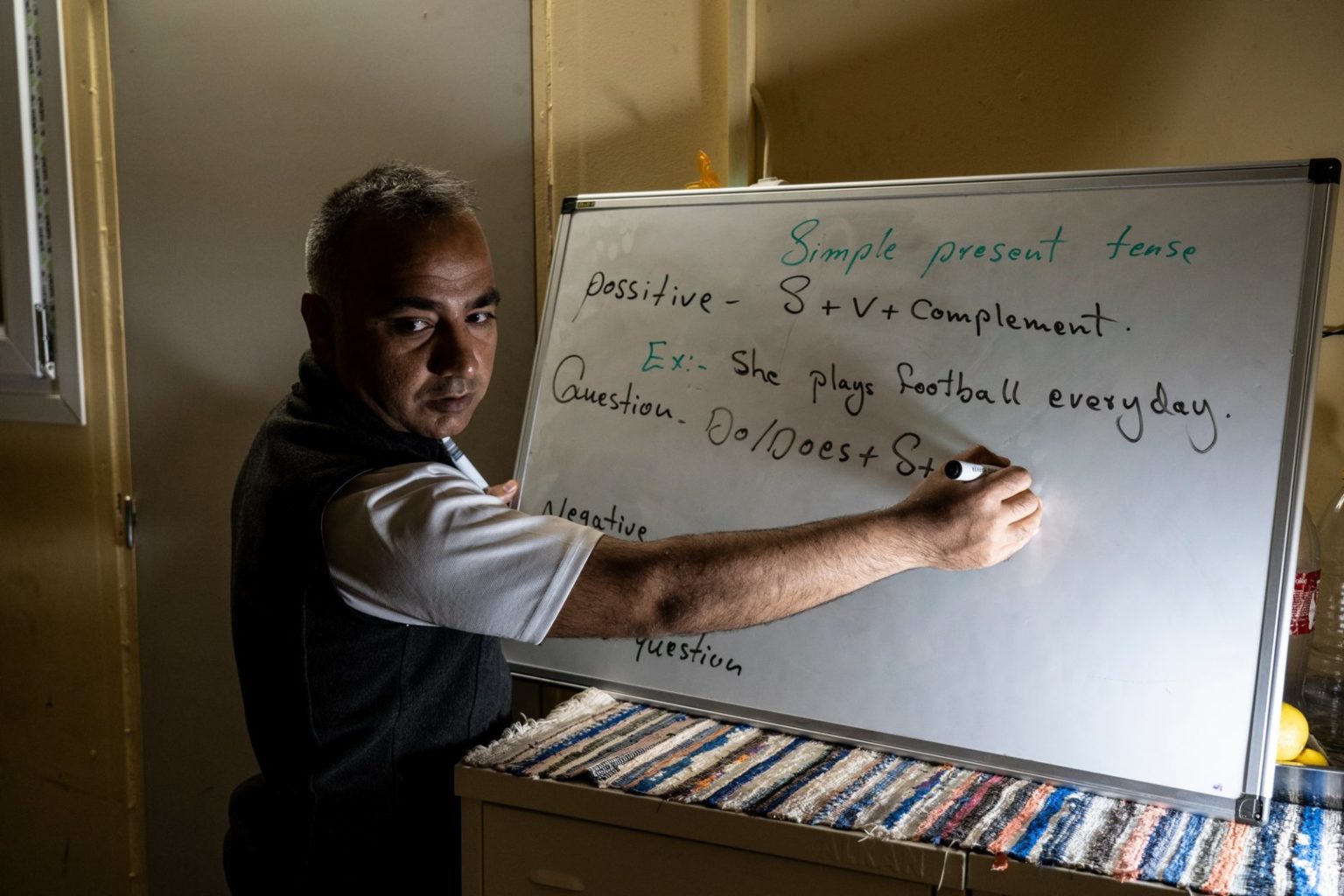
“As soon as I came here, the coronavirus appeared too. Then I said to myself that I had to do something about it, or I would lose my mind. So I decided to offer free English language lessons to the refugees that are trapped here”
Farid Sidiqi, Afghanistan
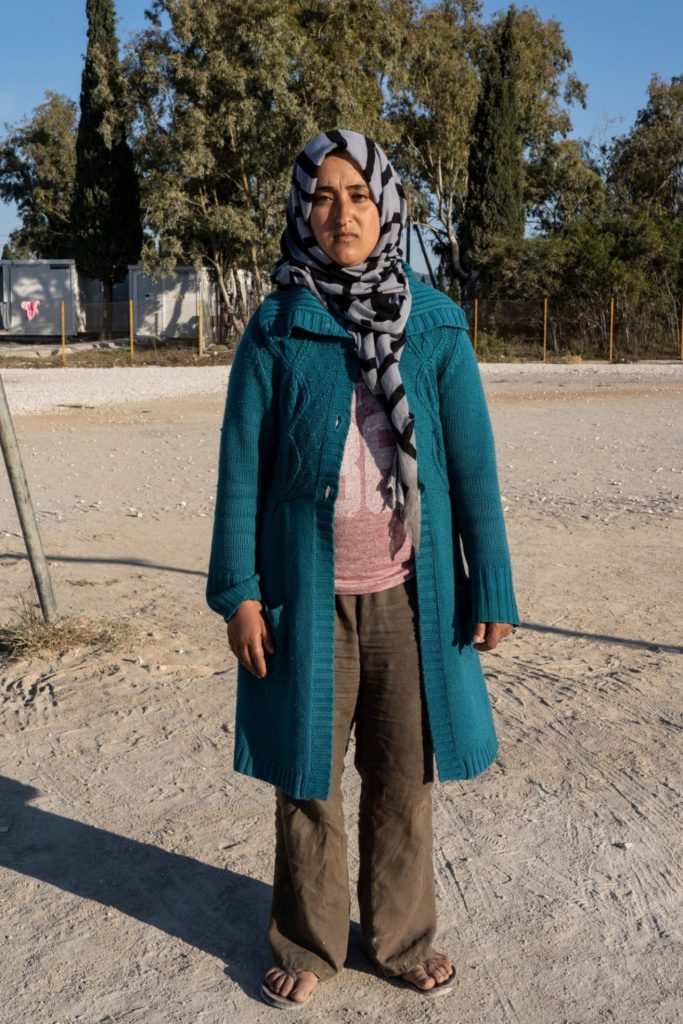
“I was eight months pregnant and a month ago I lost my baby. Now I’m stuck in Greece and cannot continue my journey to Germany, because of the coronavirus”
Amina Saada, 35 y.o., Palestine
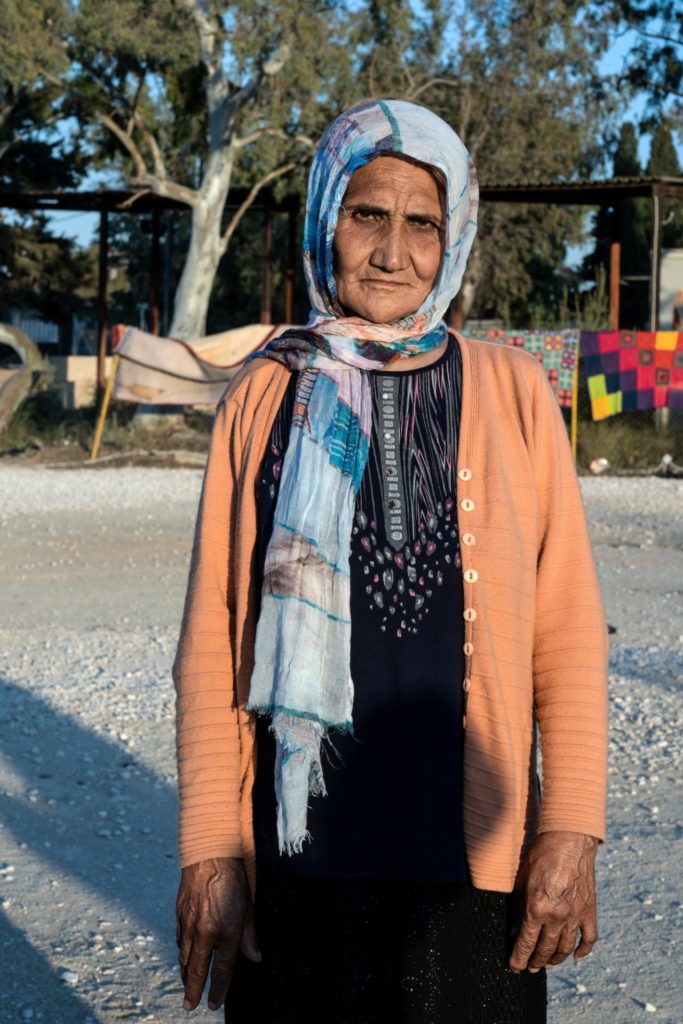
“When I came to Greece, they promised me I would stay in a beautiful house. Instead, I was brought at a camp and live with 700 other refugees running the risk of getting coronavirus”
Parwin Naiiby, 58 y.o., Afghanistan
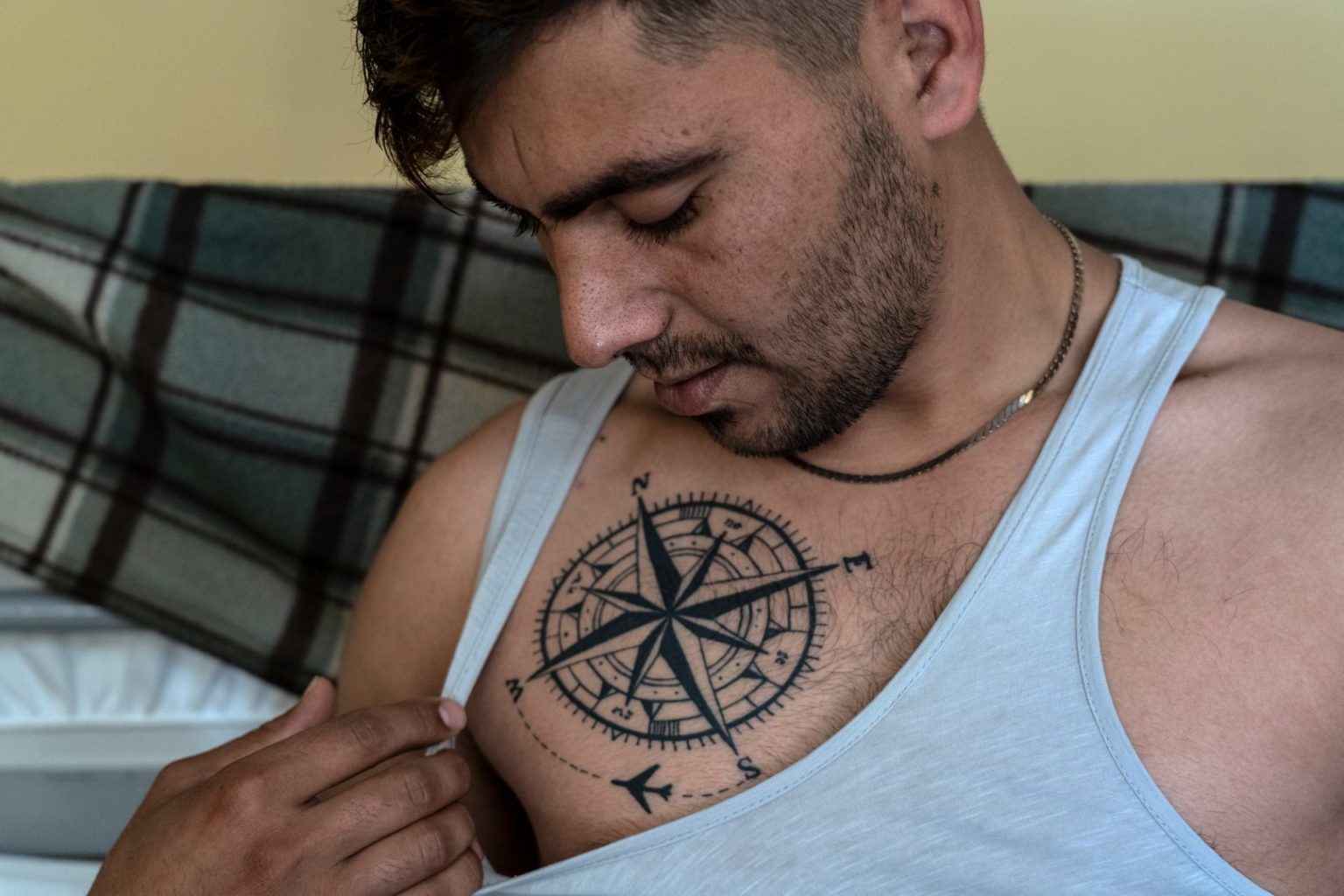
“With the pandemic my journey to Germany was cancelled. Before I came to Greece, I had this tattoo done. It is a compass to always remind me the final destination of this journey. The West”
Ehsan Attayee, 19 y.o., Afghanistan
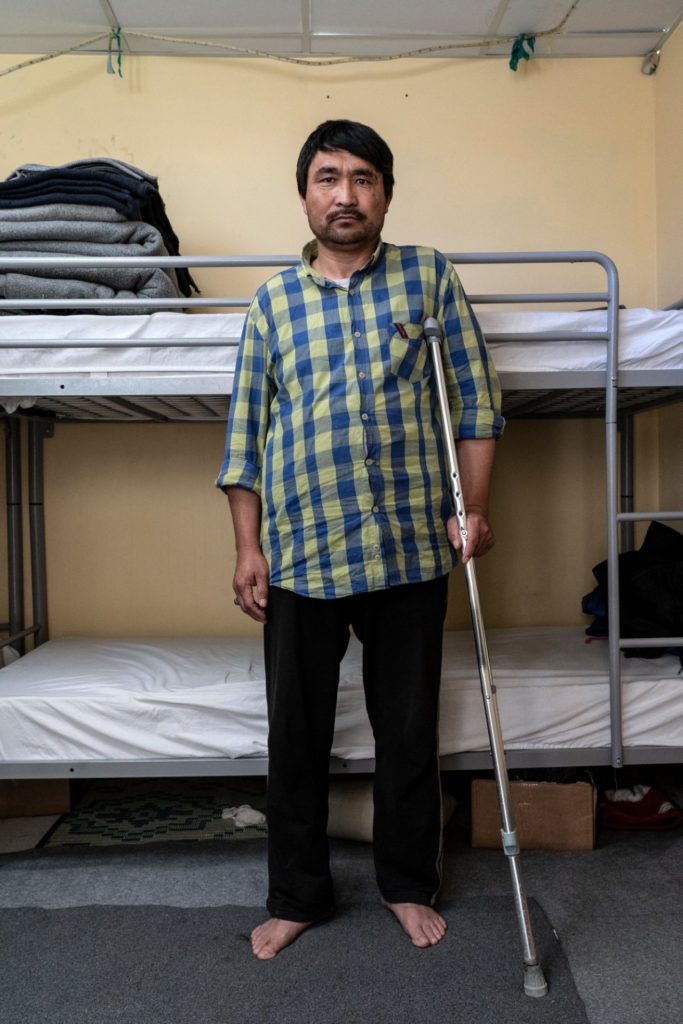
“I've broken both my legs but cannot go to the hospital in Athens, because of the coronavirus. I’m in great pain now and can hardly walk”
Mohammad Jafari, 39 y.o., Afghanistan
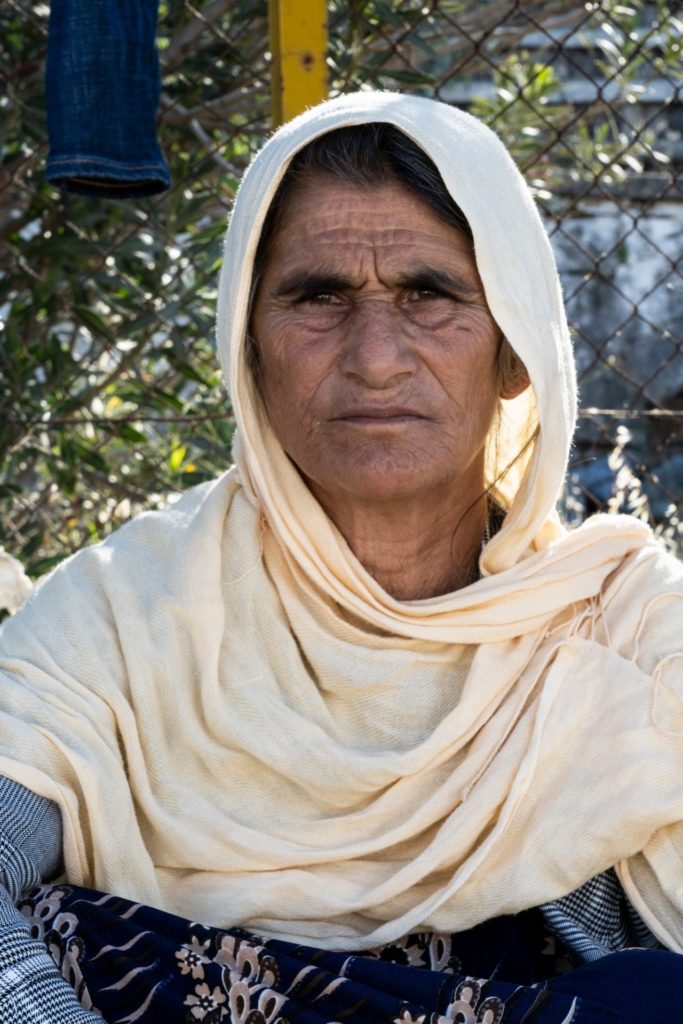
“I'm not afraid of the coronavirus. We, Afghan women are strong women”
Kobra Merzie, 65 y.o., Afghanistan
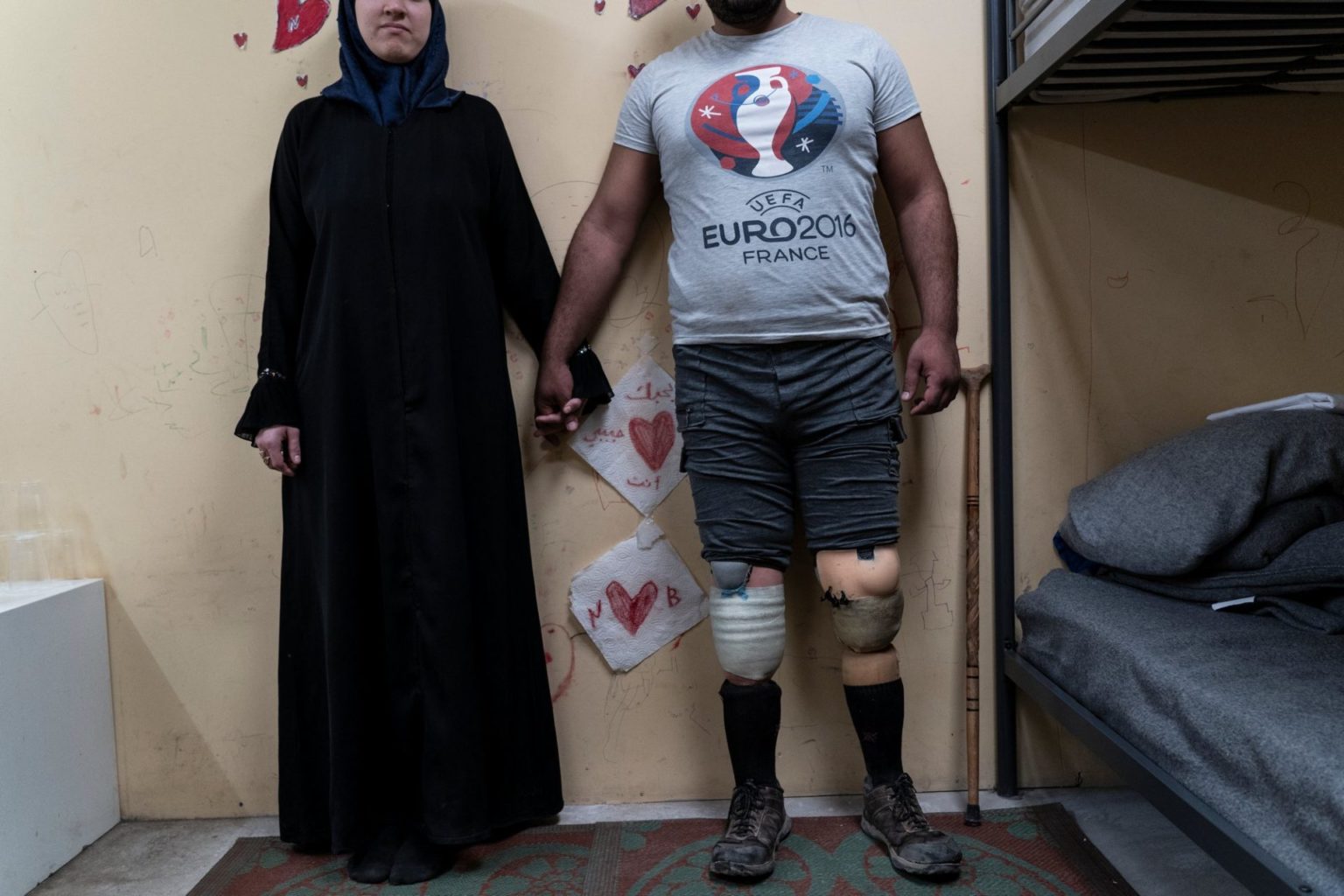
“When they bombarded my home, five people were killed and I was treated at the hospital of Ntara for two months. When I saw I had lost both my legs, I decided to continue my life with even greater passion and strength than before.”
Naji Albader met Baraa six months ago at Kos refugee camp. They got married there. They dream of continuing their journey to England after the end of the pandemic.
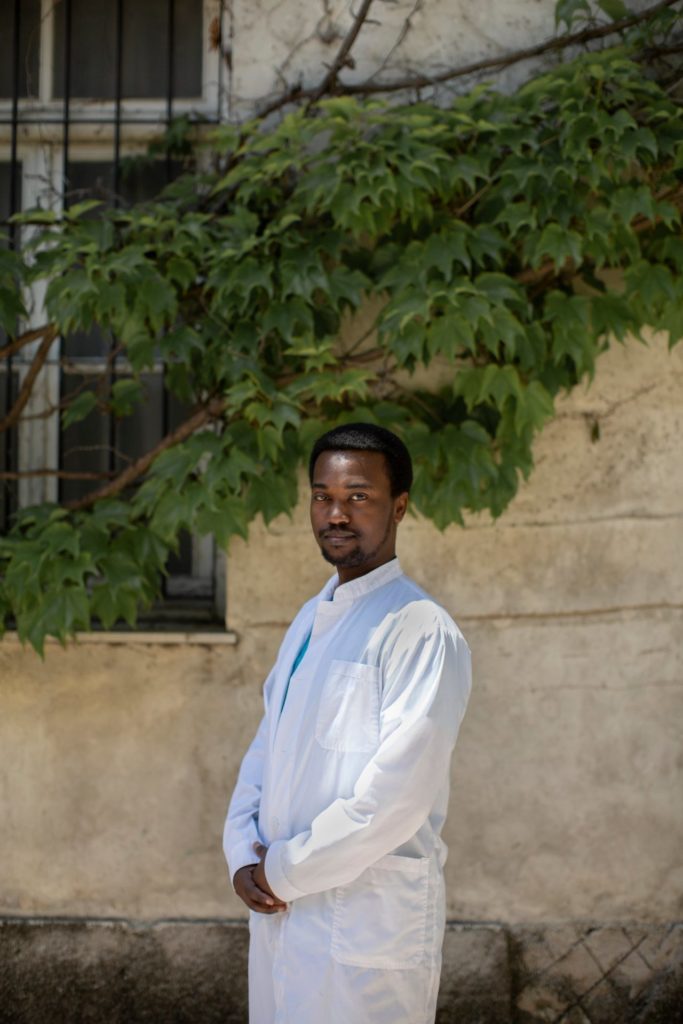
“Coronavirus hit Sudan later than Greece and to this day there is a significant increase in the number of cases and deaths. Thanks to technology I can talk with my relatives there everyday and try to pass them on my knowledge and experience to help them protect themselves against the pandemic”
Abdelrasoul Mahmoud, 34 y.o., Sudanese born in Greece – doctor
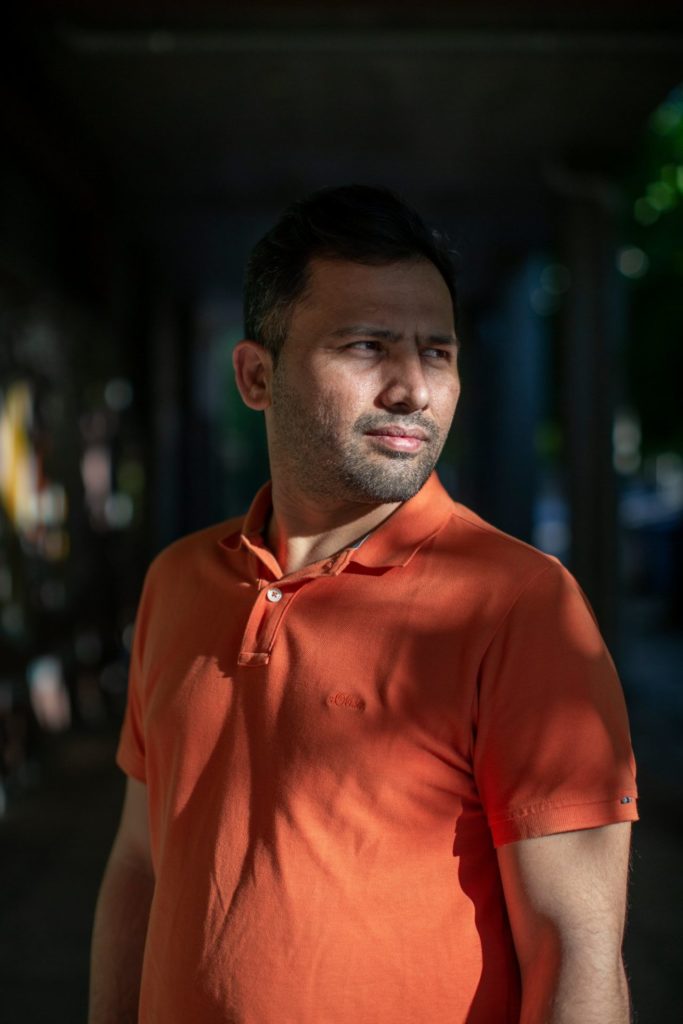
“Judging from how things are in Afghanistan, I understand that the coronavirus is common for us all; it knows no continents and borders. People in my country are afraid, because the health system is in a really bad state”
Naseeruddin Nijami, 34 y.o., recognised refugee from Afghanistan
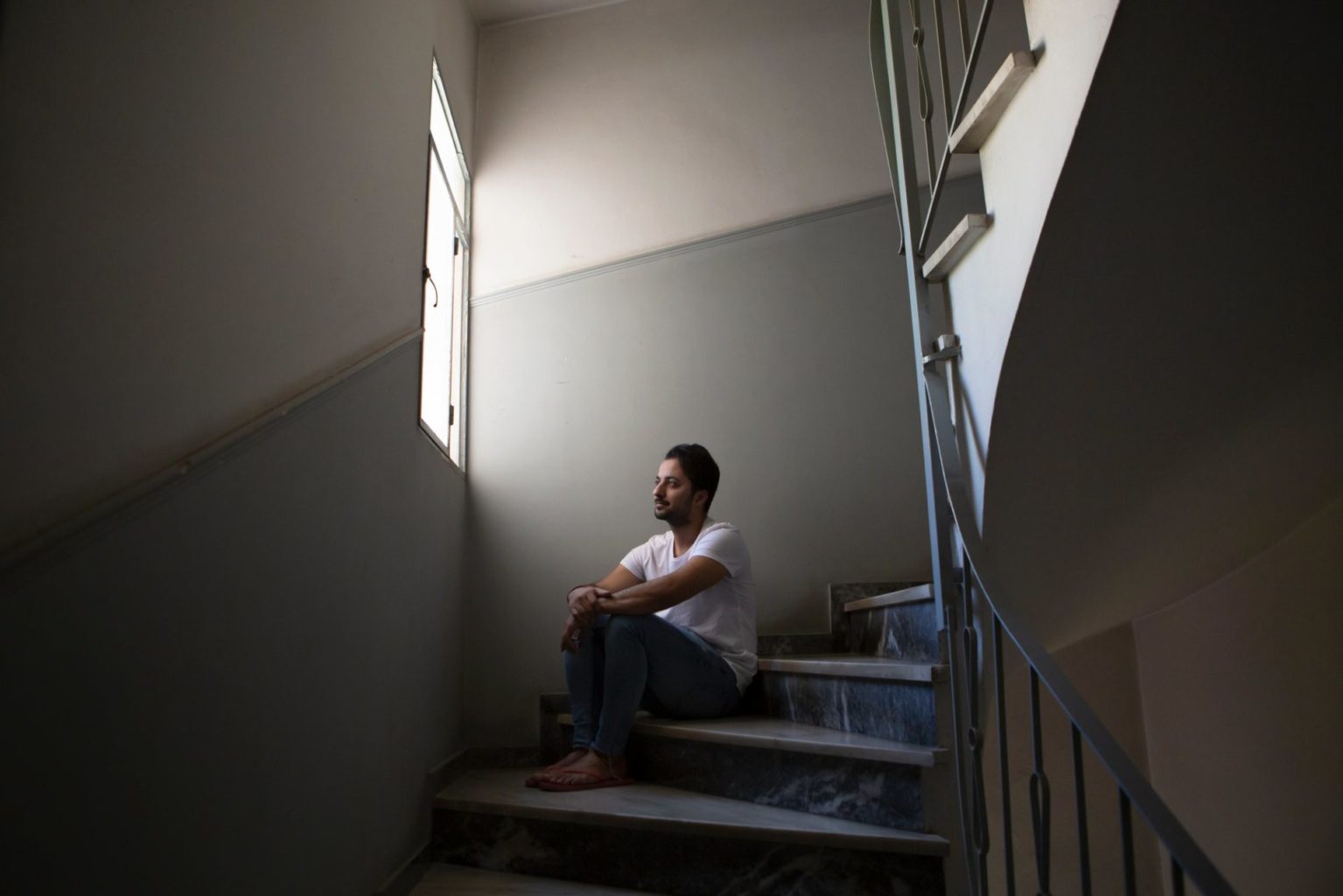
“At first, none had realised the severity of coronavirus in Iran. For a long period, no measures were taken and we had thousands of victims. I speak with my family everyday and I tell them to stay home, to wash their hands. We must apply the rules evewhere. Our planet is like a ship and we are the passengers; we will either make it together, or sink together"
Milad Motlagh, 27 y.o., Immigrant from Iran
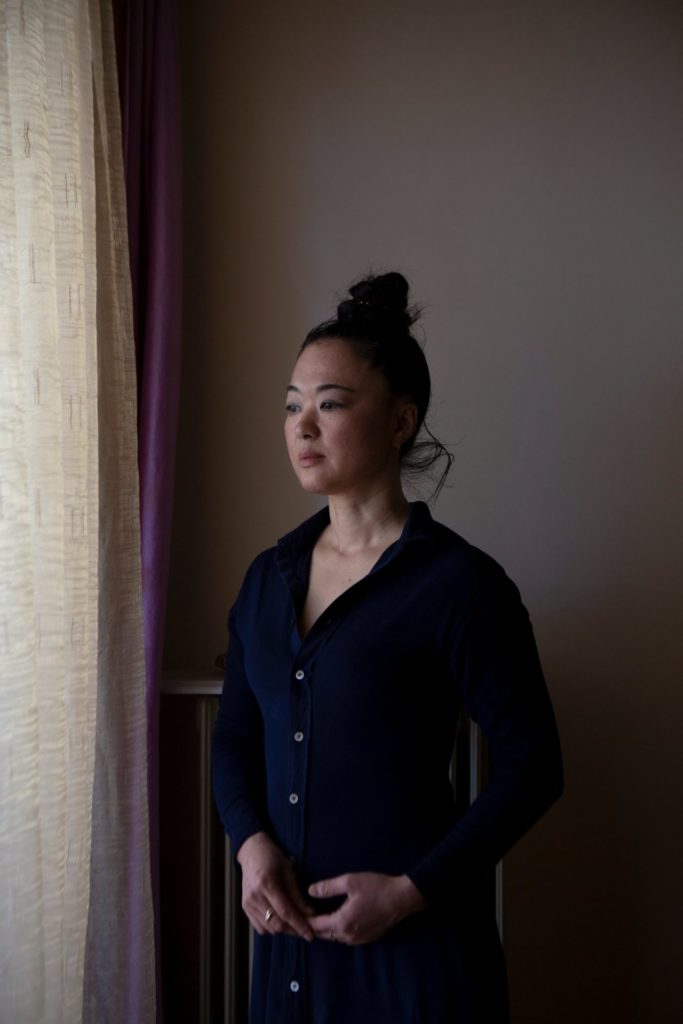
“As in Greece, people in my country too are worried about the economic crisis, because businesses are not doing too well. Many students are at risk of dropping out of universities, as they cannot afford their tuition fees”
Megumi Midorikawa, 48 y.o., Immigrant from Japan
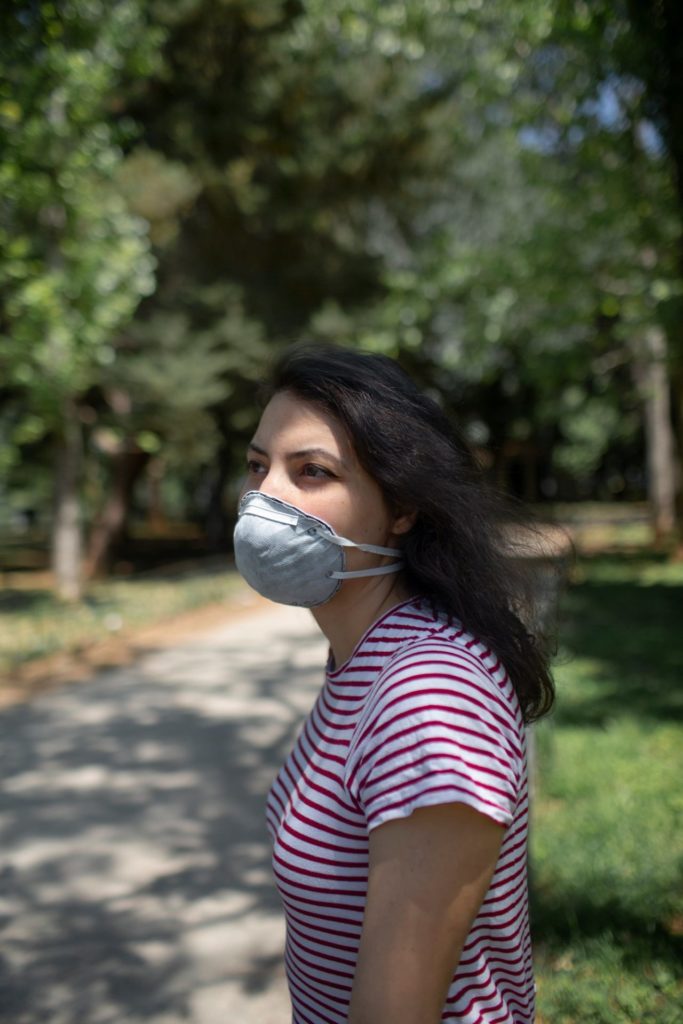
“Coronavirus has spread really fast in Turkey. This made me very worried about my family, especially my dad, who is diabetic and has a heart condition. My parents found it difficult to stay at home, because they come from the working class and have learnt to work for their survival”
Dilara Demir, 35 y.o., Immigrant from Turkey
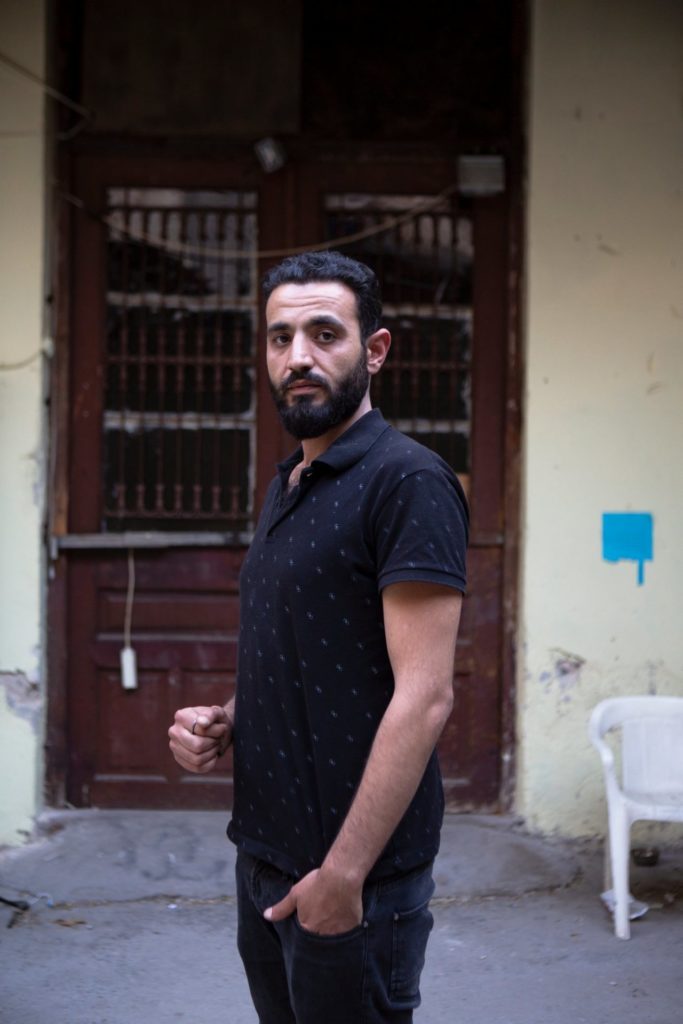
“We have no actual information about the real number of coronavirus deaths in Syria. The pandemic added yet another survival problem to our people, on top of war, hunger and our destroyed health system”
Kareem Al Kabbani, 30 y.o., refugee from Syria
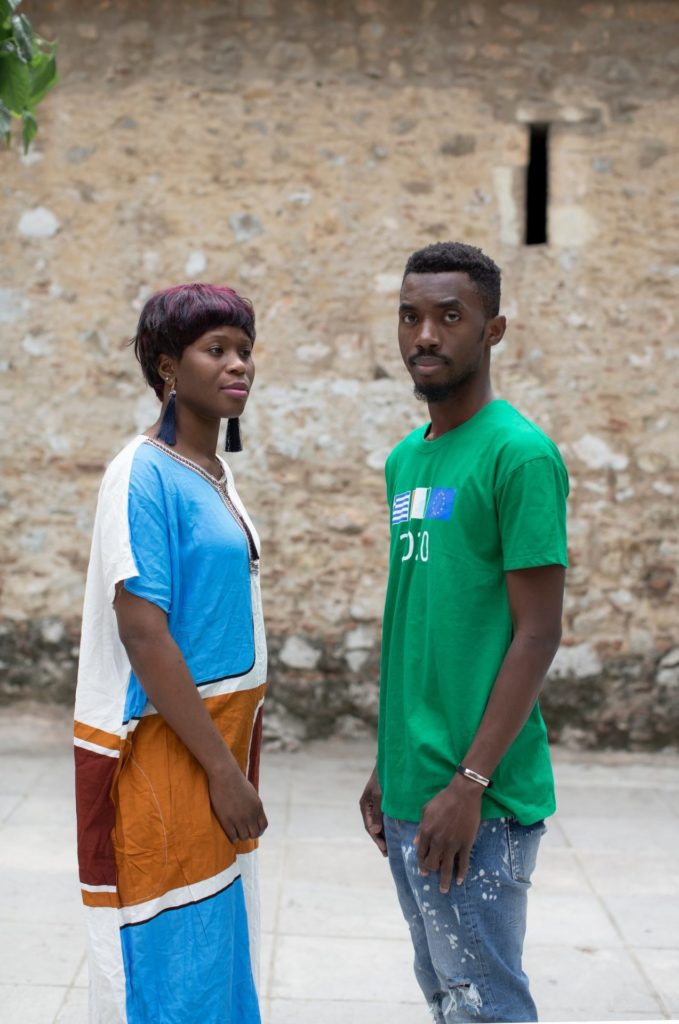
“I talk with my family in Ivory Coast everyday. However, I am concerned about those who have to go to work and are at risk of catching the disease. We want to help everyone, in Greece too. This is why we collect essentials to offer them”
Moussa Sangare, 30 y.o., and Aicha Traore, 26 y.o., Immigrants from Ivory Coast
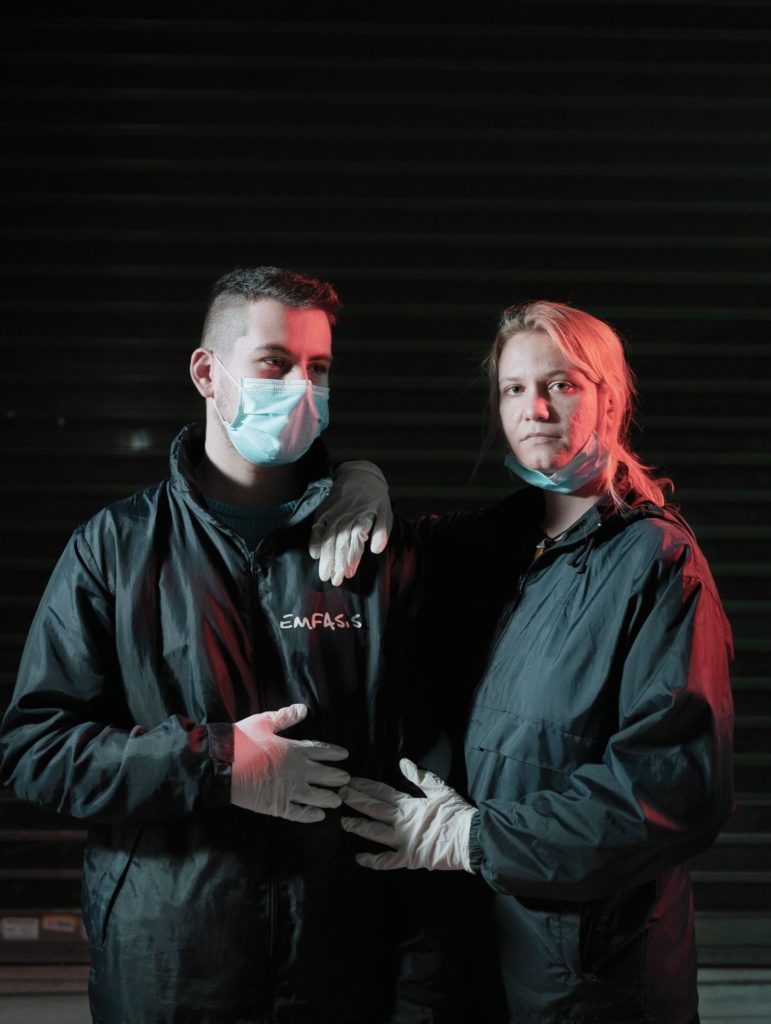
“Right now, our role is to act as mediators between our reality and that of their own”
Panagiotis Michos & Efraimia Michou, Volunteers

“Will you get me a bag? And pencils to go to school!”
Panagiota doesn’t know exactly how old she is. She says she is five or maybe six. Moreover, she has never gone to school. She lives in the Roma slums of Nea Zoi in Aspropirgos with her deaf grandmother. She plays barefoot in the muddy waters and the rubbish of the slum and dreams that, some day, someone will give her a bag and pencils so that she can go to school too.

“Nobody ever comes here. Now, with the coronavirus, we will die like flies, forgotten. It is our fate to live next to the landfill and in the trash”
Angeliki Papadimitriou is 59 y.o., diabetic. She lives with her husband and her great-grandchildren in the Roma slums of Nea Zoi in Aspropirgos. Because of the lockdown, no one can go to work and face a serious problem of survival.
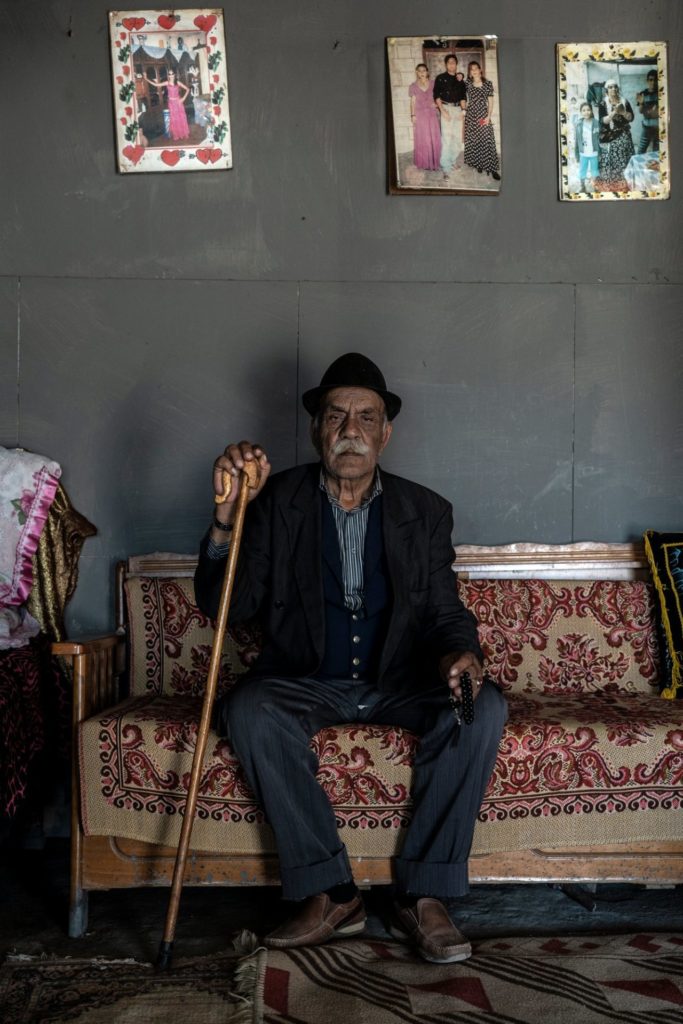
“What are we going to do now that we can't go around for scrap? Where are we going to get food from? I don’t know why we stay in and what this disease is all about. Nobody has come here to help us. Nobody has told us anything. All we know is what we hear on TV. We are scared”
Panagiotis Tsiriklos was born in 1943 in Theva. About 15 years ago, he came to Nea Zoi in Aspropirgos, thinking that the capital would offer more opportunities for himself and his ten children. He was wrong.
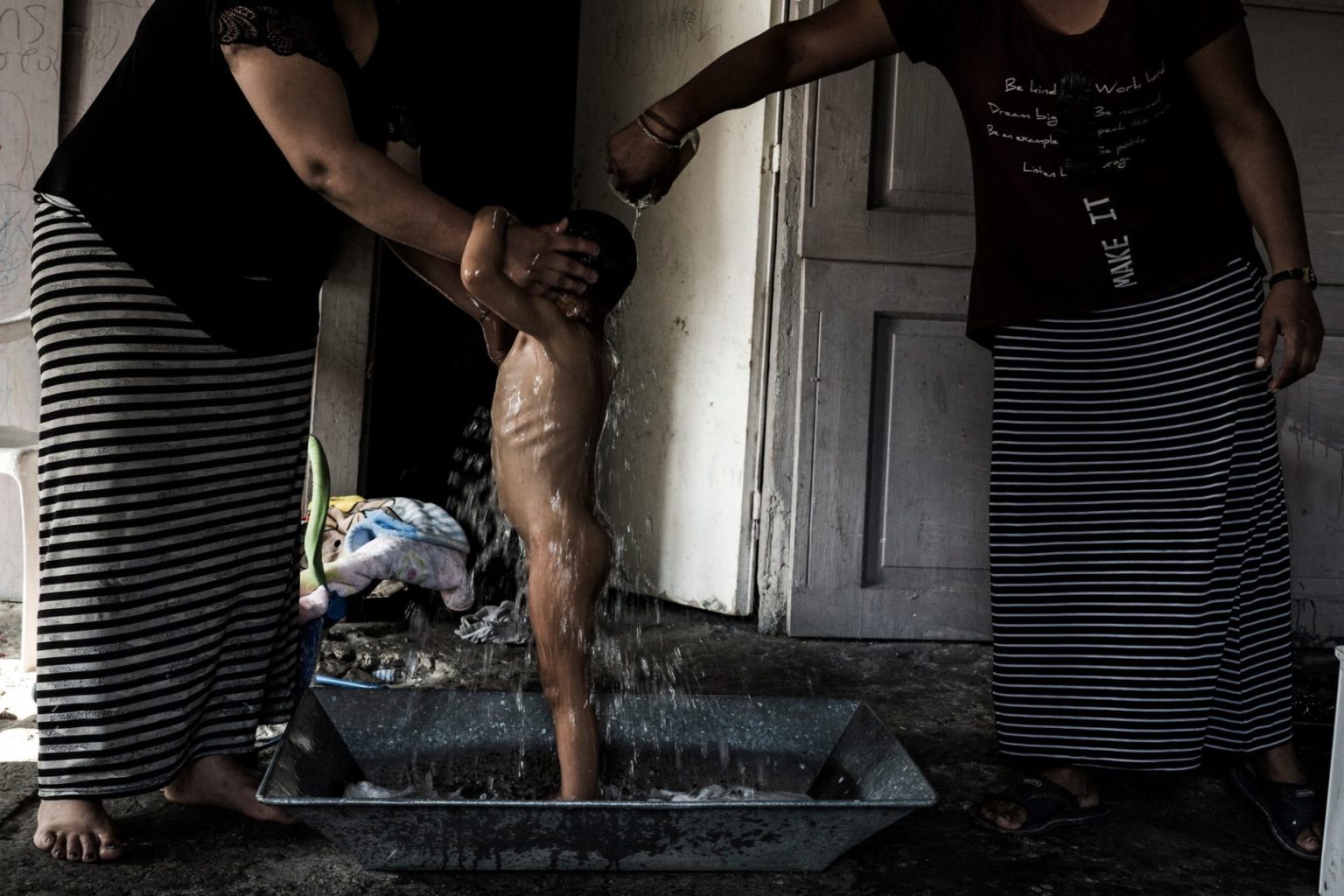
“We try to do what they tell us to on the telly. We try to be clean. But what can you do? Look down, the shack has no cement. So what if we wash ourselves? A moment later we are covered in dirt again”
Maria Dionysopoulou has two children and lives in a shack made of concrete blocks, wooden beams and polyester sheets in Nea Zoi of Aspropirgos. Every night, she heats water on the camping stove, moves a tub in the middle of the shack and bathes her children.
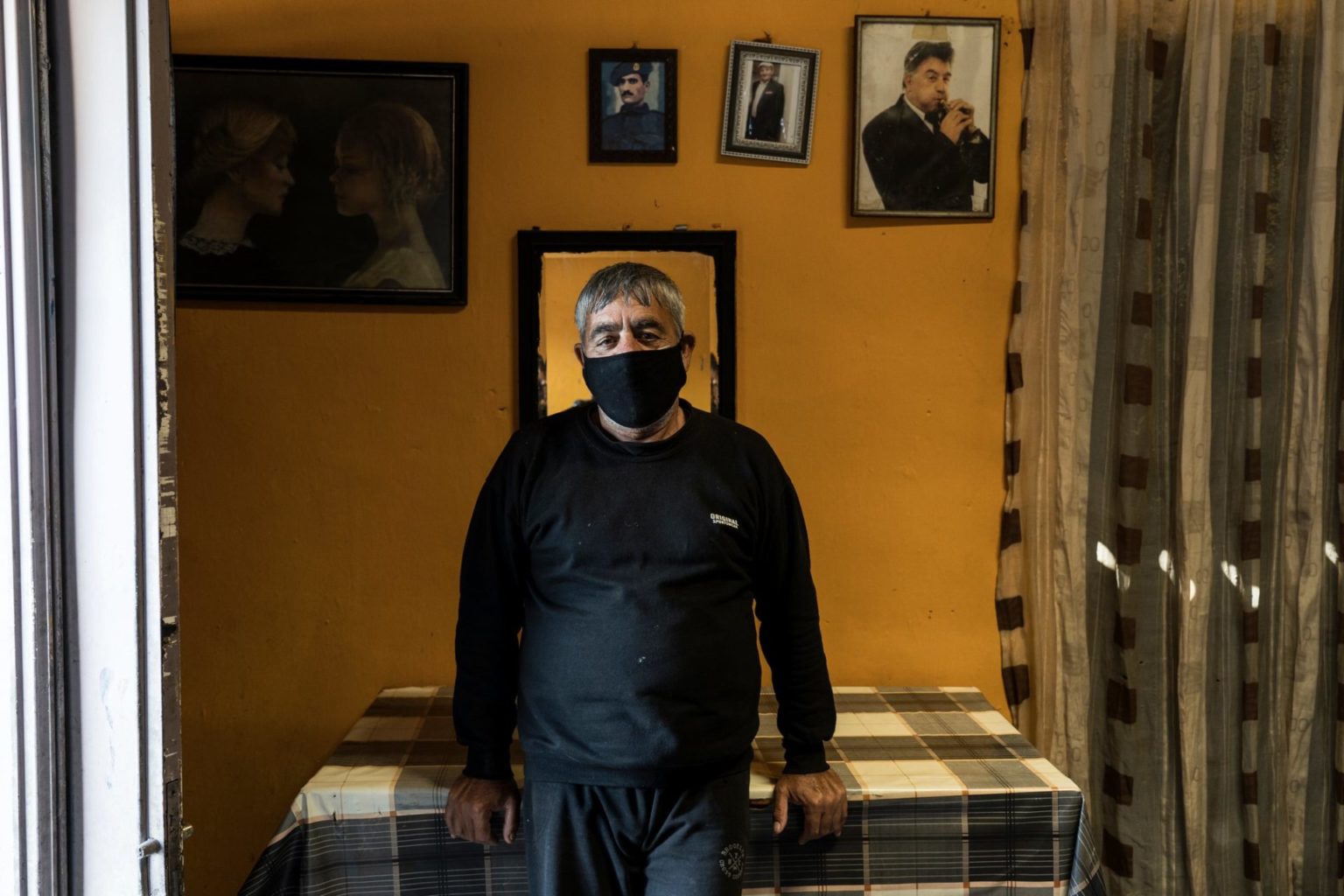
“I am a diabetic and I’m scared I may get this damned disease. What do we eat everyday? Just bread.”
In the last month, twice a week, Mpampis Mpekos wakes up at 3 in the morning. He wears his cloth mask and gets in the car, heading for the centre of Athens. There, a baker gives him the bread that was not sold in the previous days.

“If he gets the disease, what am I going to do with him? How am I to take him to the hospital? No ambulance or doctor ever gets to Nea Zoi”
Georgia Halilopoulou, 88 y.o. today, came from Thiva to Nea Zoi in Aspropirgos, with the hope of a better life. She is not so much worried about herself, as she is for her son who had been suffering from asthma attacks over the last year.
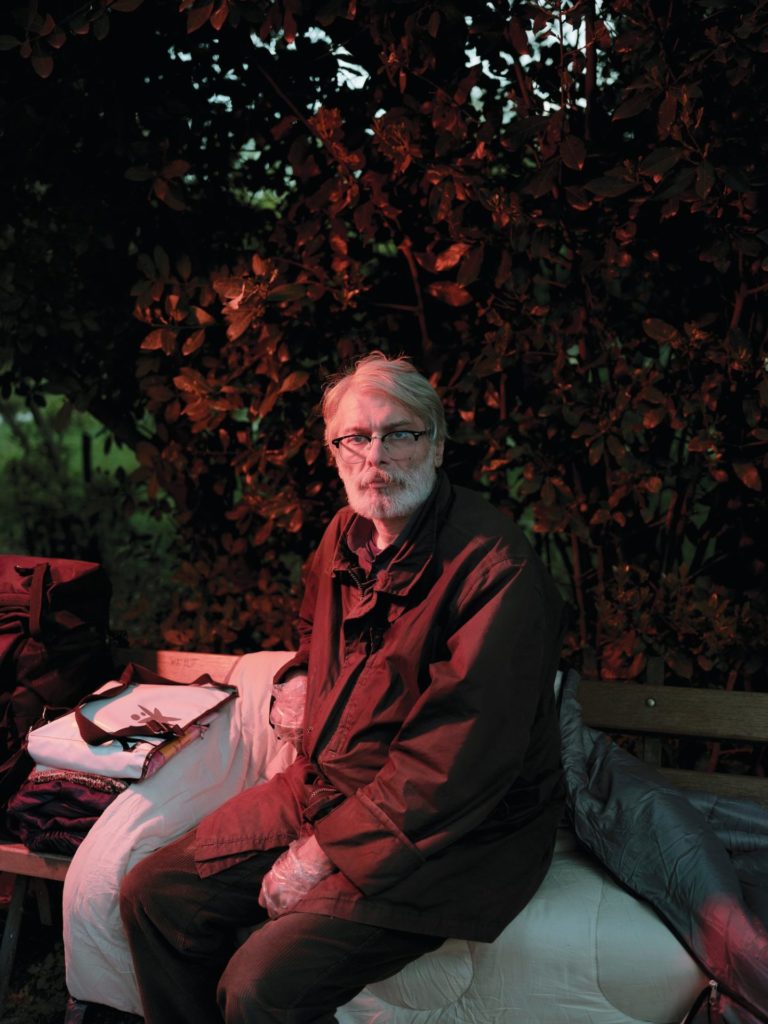
“I take a bath every Friday”
Yousef Danesh, Refugee – Homeless – Mathematician
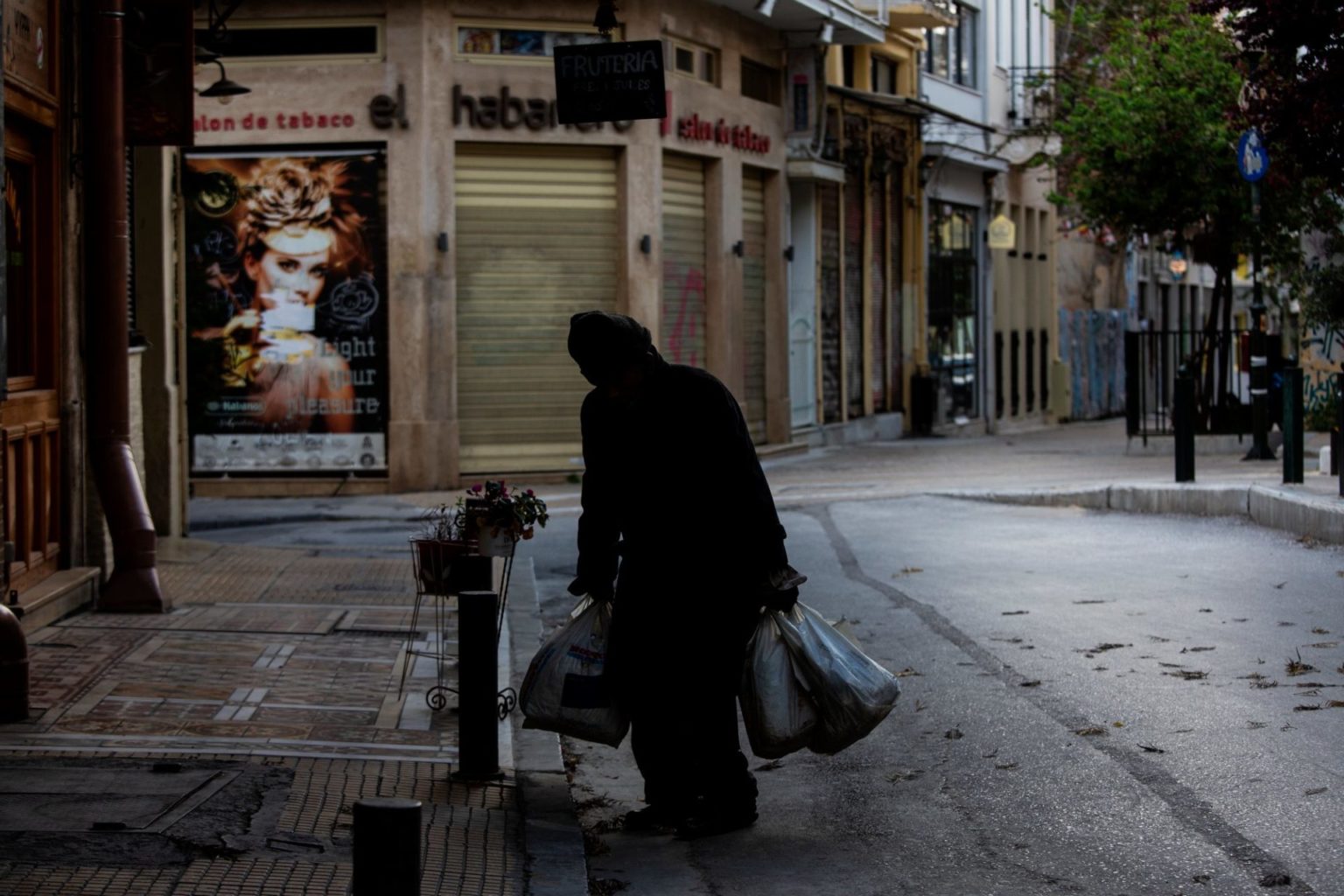
A homeless man carries his belongings in bags, wandering before closed shops in the desolate Psyrri square, during the COVID-19 lockdown, downtown Athens, Tuesday 21 April 2020.
